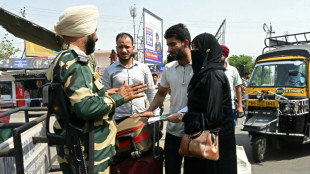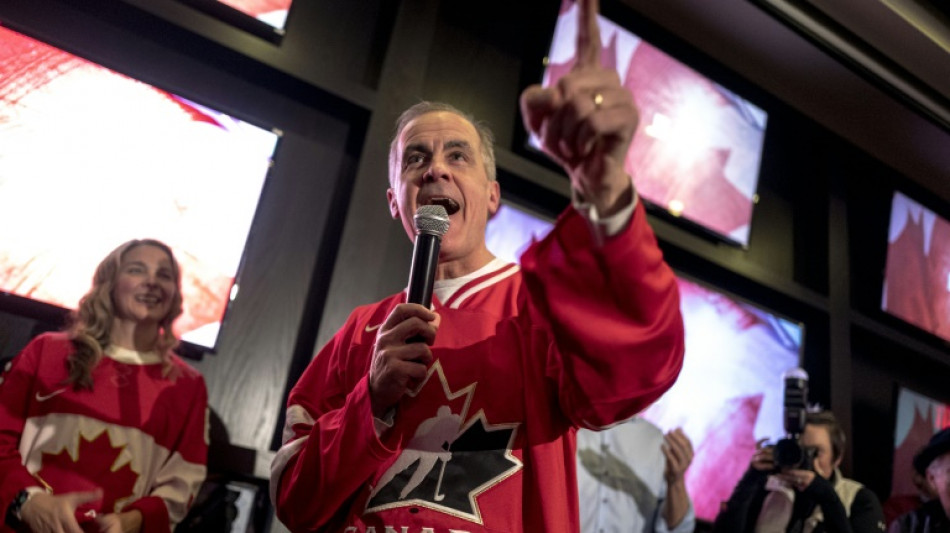
-
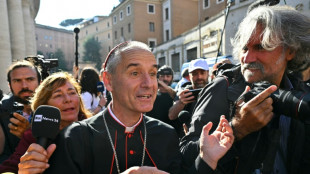 Cardinals run the media gauntlet ahead of conclave
Cardinals run the media gauntlet ahead of conclave
-
BP profit drops 70% amid pivot back to oil and gas
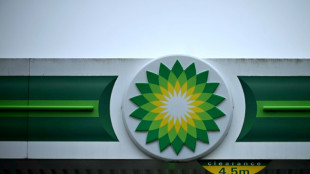
-
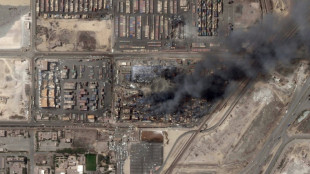 Iran says fire contained after deadly blast at key port
Iran says fire contained after deadly blast at key port
-
Irish rappers Kneecap deny support for Hamas, Hezbollah

-
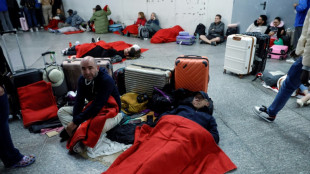 Blackout plunges Spain into chaotic night of darkness
Blackout plunges Spain into chaotic night of darkness
-
Convicted cardinal confirms he will sit out conclave
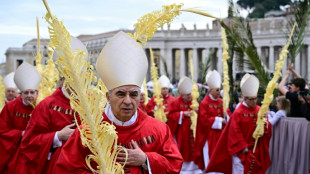
-
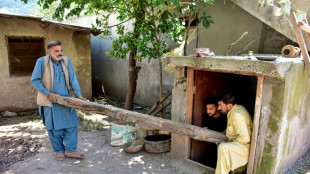 Kashmiris fortify bunkers anticipating India-Pakistan crossfire
Kashmiris fortify bunkers anticipating India-Pakistan crossfire
-
Adidas warns US tariffs to push up prices
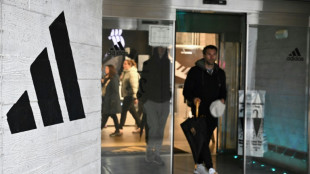
-
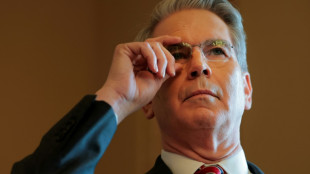 Markets boosted as Trump softens tariff pain for auto firms
Markets boosted as Trump softens tariff pain for auto firms
-
Suryavanshi, 14, dubbed 'next superstar' after batting records tumble

-
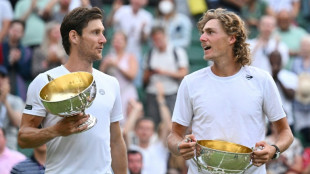 Australian doubles player Purcell accepts 18-month doping ban
Australian doubles player Purcell accepts 18-month doping ban
-
Kashmir attack unites political foes in India, Pakistan
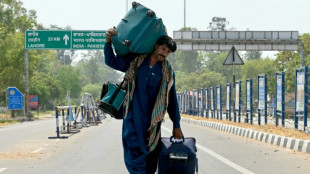
-
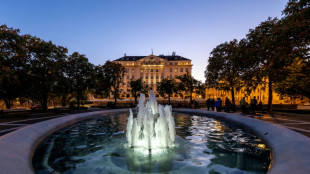 Croatia hotel toasts dizzying century of stars, sovereigns and champagne
Croatia hotel toasts dizzying century of stars, sovereigns and champagne
-
Kenya's desperate need for more snake antivenom
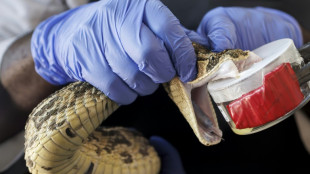
-
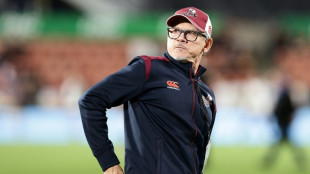 Les Kiss in frame with Wallabies set to name new coach
Les Kiss in frame with Wallabies set to name new coach
-
Cavaliers scorch Heat, Warriors down Rockets in thriller
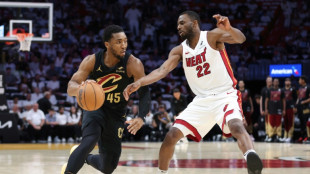
-
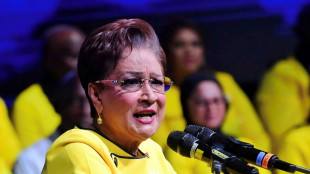 Opposition wins Trinidad and Tobago election, returning Persad-Bissessar as PM
Opposition wins Trinidad and Tobago election, returning Persad-Bissessar as PM
-
Study sheds light on origin of Australia's odd echidna

-
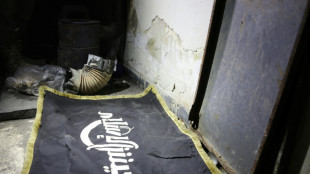 France tries Syrian Islamist rebel ex-spokesman on war crime charges
France tries Syrian Islamist rebel ex-spokesman on war crime charges
-
Trump boasts of 'fun' 100 days, but Americans disenchanted
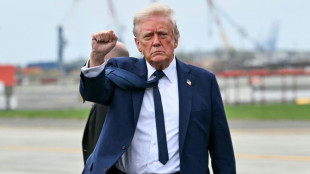
-
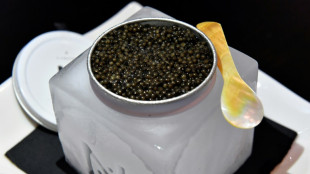 Elitist no more, caviar is turning casual
Elitist no more, caviar is turning casual
-
Amnesty accuses Israel of 'live-streamed genocide' against Gaza Palestinians

-
 Inter slump puts season at risk ahead of daunting Barca trip
Inter slump puts season at risk ahead of daunting Barca trip
-
Power returns to most of Spain, Portugal after massive blackout
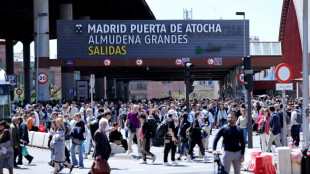
-
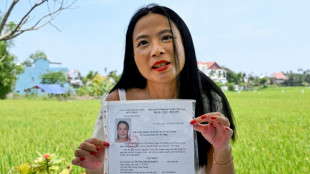 'I have hope': Vietnam Babylift survivor's search for birth mother
'I have hope': Vietnam Babylift survivor's search for birth mother
-
US climate assessment thrown into doubt as Trump dismisses authors
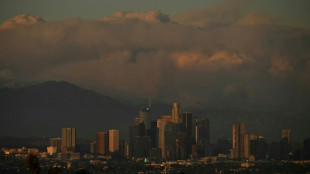
-
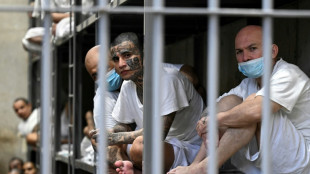 Venezuelan president slams US over little girl's 'abduction'
Venezuelan president slams US over little girl's 'abduction'
-
Hard-right upstarts eye big gains in local UK polls
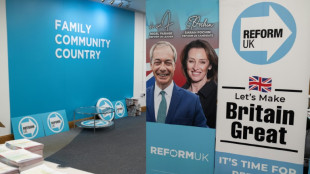
-
 Skulls, smoke and spirits: Thai ceremony for the unclaimed dead
Skulls, smoke and spirits: Thai ceremony for the unclaimed dead
-
Canada's Carney: political newcomer who says he's best in a crisis
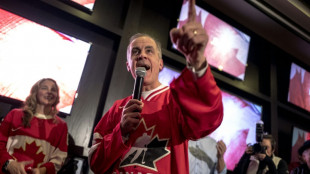
-
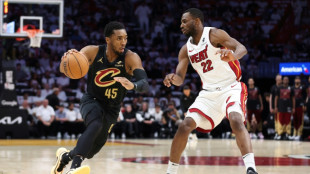 Cavaliers scorch Heat to seal series sweep
Cavaliers scorch Heat to seal series sweep
-
Dead salmon create election stink on Australian island
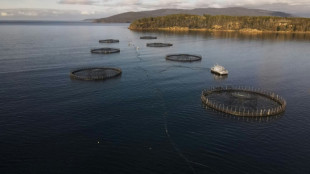
-
 Mic check: Singapore's podcast boom amplifies opposition voices
Mic check: Singapore's podcast boom amplifies opposition voices
-
Markets rise as traders gear up for earnings, key jobs data
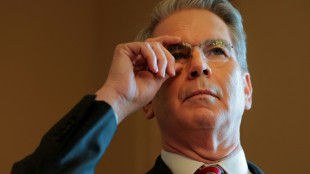
-
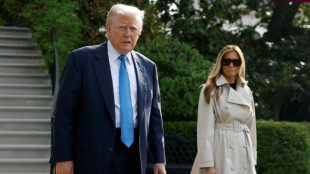 Congress passes 'revenge porn' ban, sending it to Trump
Congress passes 'revenge porn' ban, sending it to Trump
-
Spain and Portugal work to restore power after massive blackout
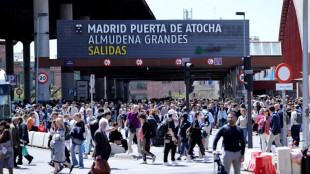
-
 Less-thirsty rice offers hope in drought-stricken Chile
Less-thirsty rice offers hope in drought-stricken Chile
-
Yamal stardust could give Barca edge on Inter Milan

-
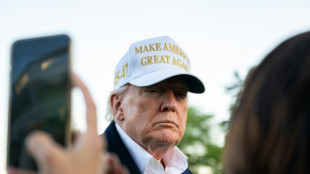 Trump targets US 'sanctuary cities' in migrant crackdown
Trump targets US 'sanctuary cities' in migrant crackdown
-
Mexico agrees to send water to US after Trump threatens tariffs
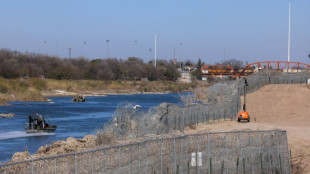
-
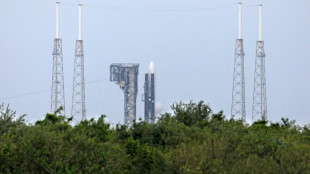 Amazon launches first Starlink-rival internet satellites
Amazon launches first Starlink-rival internet satellites
-
US lost seven multi-million-dollar drones in Yemen area since March

-
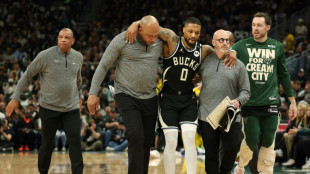 Bucks blow as Lillard suffers torn Achilles: team
Bucks blow as Lillard suffers torn Achilles: team
-
Putin orders three-day truce amid new US warnings
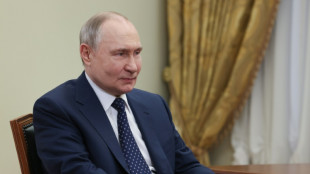
-
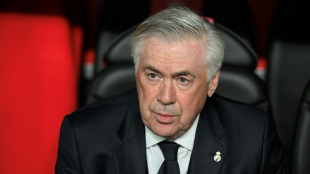 Real Madrid's Ancelotti agrees Brazil deal - reports
Real Madrid's Ancelotti agrees Brazil deal - reports
-
ChatGPT adds shopping help, intensifying Google rivalry

-
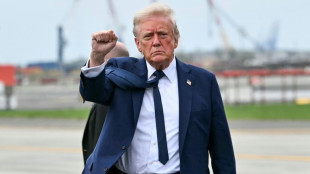 Global stocks mixed amid trade hopes as markets await tech earnings
Global stocks mixed amid trade hopes as markets await tech earnings
-
Commanders heading back to D.C. after inking $3.7 bln stadium deal
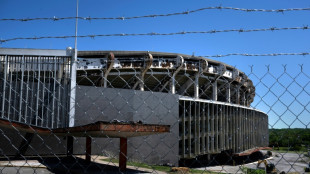
-
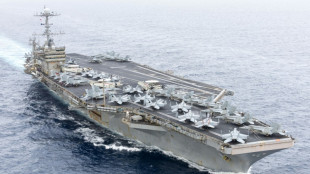 US warplane falls off aircraft carrier into Red Sea
US warplane falls off aircraft carrier into Red Sea
-
Feisty Arteta urges Arsenal fans to 'bring boots' to PSG Champions League clash
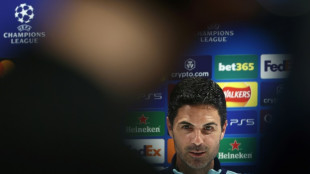

Canada's Carney: political newcomer who says he's best in a crisis
Mark Carney, whose Liberal Party won Canada's election on Monday, has a history of taking on roles at challenging moments.
"I'm most useful in a crisis. I'm not that good at peacetime," he said during the campaign.
Carney secured a term as prime minister despite having never served in parliament, which is unprecedented in Canadian history.
Even with no government experience, he convinced voters that his background dealing with financial turmoil equipped him to lead Canada through US President Donald Trump's trade war.
A 60-year-old married father of four, Carney was born near the Arctic in Fort Smith, in Canada's Northwest Territories, but was raised in the western city of Edmonton.
Like many Canadians, he played hockey in his youth. He studied at Harvard in the United States and Oxford in England, and made a fortune as an investment banker early in his career at Goldman Sachs, working in New York, London, Tokyo and Toronto.
Carney then joined the Canadian civil service, eventually being appointed governor of the Bank of Canada in 2008 by former prime minister Stephen Harper, a conservative.
The global financial crisis erupted shortly thereafter, and Carney was among a group of leaders credited with steering Canada through an international meltdown relatively unscathed.
In 2013 the United Kingdom's prime minister, David Cameron, tapped him to head the Bank of England, making Carney the first non-Briton to lead the institution since its founding in 1694.
The UK then voted to leave the European Union, and Carney played a key role reassuring markets following the 2016 Brexit vote.
When the Canadian announced he was leaving the bank in late 2019, Britain's then-finance minister Sajid Javid said Carney had led "with conviction, rigor and intelligence."
In a recent appearance on a Canadian comedy show, the host -- listing the financial crisis, Brexit and Trump's trade war -- joked Carney might be to blame for the economic upheaval that trails him.
Laughing, Carney said "it's the other way around. I come in to fix these things."
- 'Technocrat' -
Reports that Carney had interest in entering Canadian politics have circulated for years.
In January, after then-prime minister Justin Trudeau announced his plans to resign, Carney launched a campaign to lead the Liberal Party.
Analysts questioned whether a technocrat with no experience in retail politics could energize a party facing dismal polls, as anger towards Trudeau surged after a decade in power.
Dalhousie University professor Lori Turnbull has noted Carney "doesn't have a dynamic communication style."
And yet he went on to win the Liberal party race, and the general election.
Carney had isolated stumbles during the campaign, but experts said his most effective moments were those when he assumed the role of prime minister and assailed Trump in front of a row of Canadian flags.
"The old relationship we had with the United States based on deepening integration of our economies and tight security and military cooperation is over," Carney said last month after Trump unveiled his auto tariffs.
- Touchy subject? -
After leaving the Bank of England, Carney wrote a book and became a United Nations advisor on climate change and finance.
He also returned to the private sector as chairman of Brookfield Asset Management, a major multinational Canadian company.
Carney faced tough questions about his private sector experience, including any role he played in helping Brookfield reduce its Canadian tax burden.
He also had tense exchanges with reporters when asked about his personal wealth.
Carney was pressed to disclose his assets, including what stocks he held, so voters could judge whether he faced any conflicts as prime minister.
He countered that he put all his assets in a blind trust, complying with Canada's ethics rules.
"Look inside yourself," he said to a reporter who pressed him last month on his decision not to disclose his assets.
"You start from a prior of conflict and ill will," he charged.
"I have stood up for Canada. I have left my roles in the private sector at a time of crisis for our country."
M.Vogt--VB

